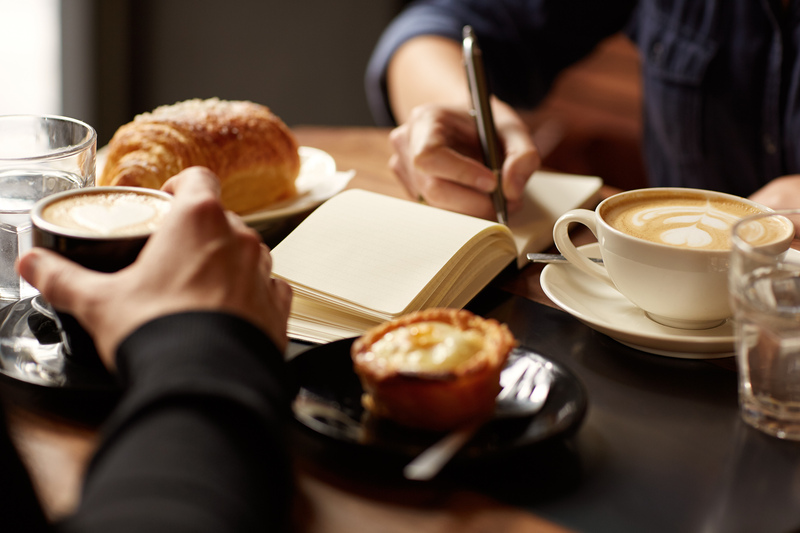Safeguard Your Piano: Top Reasons to Avoid Moving It Alone
Posted on 23/06/2025
Moving a piano might seem like a simple home project--until it isn't. Pianos are among the most loved and valuable items in a home, carrying both financial and sentimental worth. However, mishandling this complex instrument can lead to expensive repairs, personal injuries, and even irreparable damage. This article will highlight why you should never move your piano by yourself, providing a comprehensive look at the risks and benefits of professional piano relocation. Read on to protect your cherished instrument and ensure it arrives at its new home safely.
Understanding Why Pianos Are Special
Pianos are not just ordinary pieces of furniture. With thousands of intricate parts and delicate harmonics, their design and construction require special attention. Here are a few factors that distinguish pianos from regular household items:
- Intricate Mechanisms: Uprights, grands, and baby grands house thousands of moving components, including hammers, strings, pedals, and a delicate wooden soundboard.
- Sheer Weight and Size: Even the smallest upright piano can weigh over 400 pounds. Baby grands and grand pianos can easily exceed 1,000 pounds.
- Tuning Sensitivity: The tension in piano strings totals up to 20 tons, making them highly sensitive to jostling or environmental changes.
- Surface Vulnerability: The glossy finish, pedals, and keys are prone to dents, scratches, and irreversible aesthetic damages if not handled correctly.

Top Reasons to Avoid Moving Your Piano Alone
Before you recruit friends or attempt a DIY move, consider these substantial reasons why moving a piano by yourself is never a good idea:
1. Risk of Serious Injury
Pianos are exceptionally heavy and awkward to maneuver. The weight is often unevenly distributed, making accidental slips, drops, or pinched fingers a real hazard. Many piano owners who attempt solo moves have suffered:
- Back injuries from improper lifting techniques
- Crushed fingers or toes caught under the instrument's legs or lid
- Strains, pulled muscles, or falls--especially on stairs or tight hallways
Professional piano movers use specialized equipment and techniques to eliminate these risks. Protect your health and well-being by not underestimating the challenges involved.
2. Potential for Damaging the Piano
A piano's beauty and sound are maintained through precise construction and care. One wrong move can jeopardize both. Common damage from inexperienced handling includes:
- Broken legs or pedals
- Cracked soundboard, the heart of your piano's resonance
- Detached keys or warped action mechanisms
- Scratched or chipped finishes that are costly to repair
These damages often outweigh any money saved by skipping professional services. Keep in mind, the cost of repairing an antique or high-end acoustic piano can run into the thousands--sometimes more than the cost of professional moving.
3. Risk of Property Damage
Not only is your instrument at stake, but so is your home. DIY movers without proper equipment frequently cause:
- Dented walls and baseboards while navigating corners
- Scratched hardwood floors from dragging or dropping the piano
- Damaged door frames or staircases during tight squeezes
Professional piano moving specialists are trained to avoid such costly property damage, and typically offer insurance for added peace of mind.
4. Lack of Proper Equipment
A successful piano relocation requires much more than a set of strong arms. Essential tools for a safe move include:
- Piano skids and dollies designed to support heavy loads
- Protective padding and blankets to prevent scratches
- Ramps and lifts for stairs or uneven surfaces
- Secure straps to keep the piano immobilized in transit
Chances are, the average homeowner doesn't hold these specialized tools, making the task not only difficult but nearly impossible to perform safely.
5. Insurance and Liability Issues
Most homeowners' insurance policies do not cover damages or injuries during a DIY piano move. If your piano is damaged or you--or a friend--get hurt in the process, the financial and legal repercussions can be significant. Reputable piano movers carry specialized insurance that protects:
- The instrument during handling and transport
- Your home and property from accidental damage
- The moving team in case of injuries
Hiring professionals keeps everyone protected and drastically reduces your liability.
6. Tuning and Regulation Concerns
Pianos are finely tuned instruments. Even a short move can lead to:
- Strings stretching or slackening due to vibration or jostling
- Problems with action alignment impacting playability
- Environmental shocks from temperature and humidity changes
Experienced movers understand these risks and take every precaution. Many also partner with technicians who can assess and re-tune your piano post-move, ensuring your piano stays in perfect condition.
7. Emotional and Sentimental Value
Your beloved piano might be a family heirloom, the centerpiece of your living room, or a partner in daily musical practice. For many, its sentimental value is incalculable. Attempting a move without proper preparation puts this at risk. Damaging or destroying such a meaningful item is a regret you want to avoid.
The Benefits of Hiring Professional Piano Movers
Having reviewed the risks, let's examine the benefits of professional piano moving services:
- Expertise and Experience: Professional movers have years of experience and specialize specifically in handling all types of pianos, from uprights to concert grands.
- Safety: They have refined techniques for both lifting and maneuvering heavy instruments in tight or tricky spaces.
- Right Equipment: Specialized skids, straps, and padding ensure your piano is transported securely, reducing the risk of accidents or damage.
- Insurance Coverage: Should anything go wrong, your beloved instrument and property are fully covered.
- Piano Care: Professionals understand the best environmental conditions for transport to minimize shock and climate-related problems, and some can even coordinate post-move tuning.
Frequently Asked Questions
Can two strong people move a piano safely?
While two strong individuals might think they can move an upright piano, the reality is that moving a piano is not just about strength--it's about experience, balance, specialty tools, and finesse. Even the smallest mistake can lead to serious injury or costly damage.
Is moving a piano really that different than moving a sofa?
Absolutely. Unlike most furniture, pianos are constructed with intricate internal mechanisms, a heavy cast-iron frame, and delicate finishes. The risk factors make piano relocation a unique challenge that's best left to the experts.
How much does professional piano moving cost?
The cost to move a piano professionally varies depending on size, type, distance, and difficulty of the move (stairs, narrow doors, etc.). While this may seem like an extra expense, it typically pales in comparison to the cost of repairing a damaged piano--or worse, replacing it entirely.
What can I do to prepare for professional piano movers?
Clear walkways, secure kids and pets during the process, and communicate any challenging aspects of the move (narrow staircases, steep entrances, etc.) to the movers ahead of time. Remove all decorative items from the piano and, if possible, lock the keyboard lid to prevent accidental damage.
Professional Piano Movers VS DIY: A Quick Comparison
| Aspect | Professional Movers | DIY Move |
|---|---|---|
| Experience | Years of specialized moving experience | Lack of specific knowledge and skills |
| Equipment | Proper skids, dollies, straps, and padding | Likely insufficient or improvised gear |
| Safety | Reduced risk of injury and damage | High risk of accident, injury, or loss |
| Insurance | Fully insured against liabilities | Minimal to no coverage for damages or injuries |
| Aftercare | Assistance with tuning and adjustment | Piano may need extensive repairs or tuning |

How to Choose the Best Piano Movers
When safeguarding your piano, it's essential to choose a reputable moving service. Here are a few tips to select the best provider:
- Check for Reviews and References: Positive testimonials provide peace of mind about performance and reliability.
- Verify Insurance and Licensing: Any reputable company should be fully insured and licensed for musical instrument transportation.
- Ask About Equipment and Process: Inquire about the tools and steps they use to ensure safe delivery.
- Get a Detailed Estimate: Transparent pricing and clear terms help avoid unwelcome surprises.
- Seek Specialized Apprenticeships: Well-established movers often have specialized training in piano care and logistics.
Final Thoughts: Don't Gamble with Your Piano's Safety
Your piano is an investment--musically, emotionally, and financially. While the temptation to save a few dollars may be strong, the risks involved in moving it yourself simply aren't worth it. From personal injury to devastating losses in property and musical quality, the evidence is clear: Trusting your cherished instrument to professional hands is always the best choice.
When the time comes to relocate, remember these top reasons to avoid moving your piano alone. Preserve its beauty, sound, and significance by enlisting qualified experts. The music will thank you.
Latest Posts
Safeguard Your Piano: Top Reasons to Avoid Moving It Alone
Unlock expert advice on moving your bed and mattress
Secrets to a Calmer, More Efficient House Move










